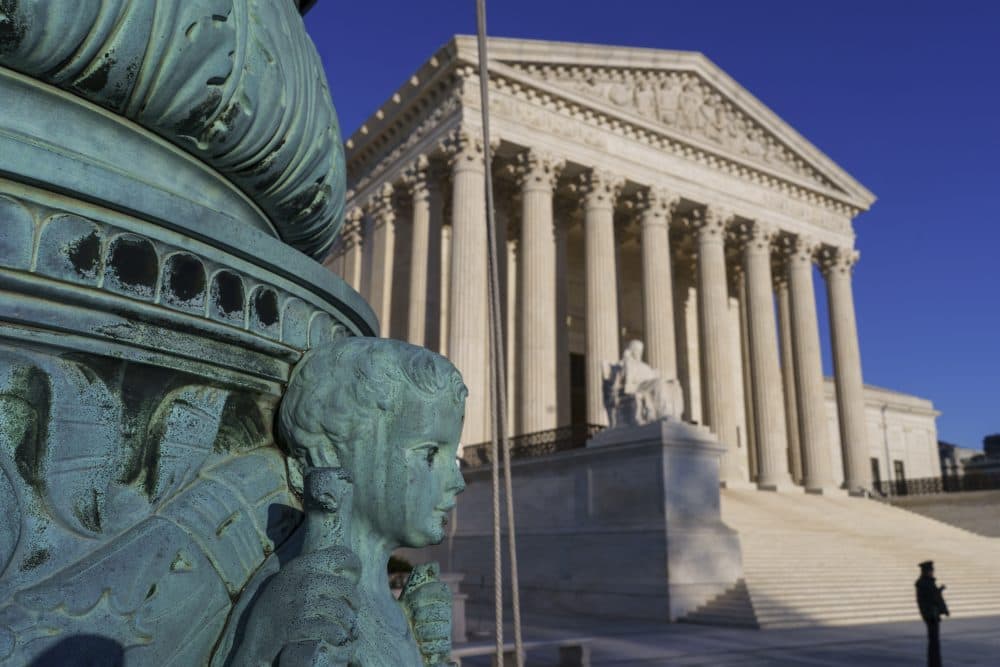Advertisement
Supreme Court Hears Arguments In Martha's Vineyard Immigration Case
Resume
The U.S. Supreme Court heard oral arguments on Monday in an immigration case that could create a profound precedent for some immigrants living in the country without authorization.
The case, Pereira vs. Sessions, involves a man who has lived on Martha's Vineyard for more than a decade, and at the heart of the case is a document called a "Notice to Appear." The notice is issued by immigration authorities and can stop an undocumented immigrant's ability to apply for a particular form of relief from deportation. That relief is called a cancellation of removal from the United States.
The main questions in the case revolve around what information the federal government needs to provide when issuing a Notice to Appear to immigrants. Lawyers for Pereira say the notice he received was insufficient because it did not include the date and time of the hearing. Statute dictates that these details should be provided in a notice.
However, Frederick Liu, the attorney for the government, stated in court Monday that issuing notices with that level of detail is simply not practical given the load of cases immigration courts are facing.
When asked by Justice Anthony Kennedy about the percentage of notices that are issued without providing the date and time of the hearing, Liu responded: "The vast majority, nearly 100 percent."
Liu said the government's position is that including the charge against the immigrant on the Notice to Appear is of the utmost importance and that the details of when the hearing is to take place are secondary.
Justice Neil Gorsuch pushed Liu on this point, asking him to define a Notice to Appear according to the government's standards. "When does the emperor have no clothes?" he asked.
In other words, if the government can choose which information it deems necessary to provide in the document, is there a point at which it fails to serve its purpose as a Notice to Appear?
The justices peppered both attorneys with questions about exactly how the government defines a Notice to Appear.
Attorney David Zimmer is representing Wescley Pereira, an immigrant who has lived on Martha's Vineyard for 16 years. He argued the court's decision should focus on the language of the statute.
"So, if it's favorable, then the case will be remanded to the 1st Circuit, which would presumably remand it back to the immigration authorities, and then he'd be able to apply for cancellation of removal," he said.
If the Supreme Court does not decide in his favor, Pereira would likely be deported back to his native Brazil.
In his final arguments, Zimmer said that when Congress established the statute outlining the necessary information to be included in a Notice to Appear, there was no differentiation between which details were to be prioritized. Congress treated the requirements equally, Zimmer said, and given that the document is called a Notice to Appear, when and where to appear should be a priority.
This segment aired on April 24, 2018.
